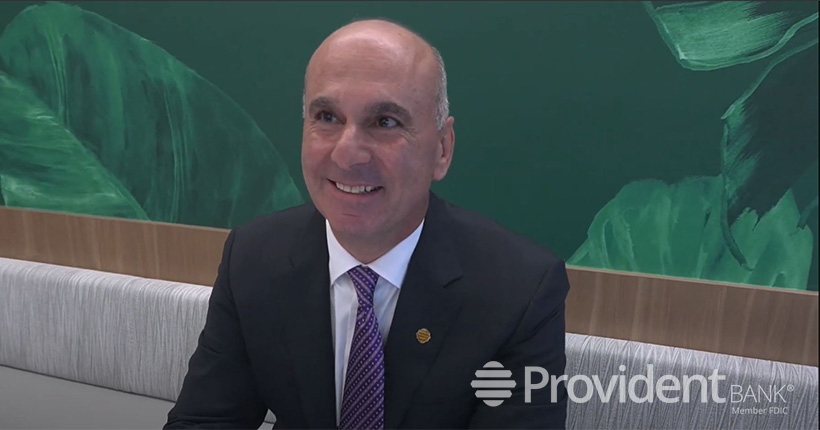
FDIC-Insured - Backed by the full faith and credit of the U.S. Government

FDIC-Insured - Backed by the full faith and credit of the U.S. Government
 VIEW ALL EDUCATION & INSIGHTS
VIEW ALL EDUCATION & INSIGHTS
May 23, 2014
Grease is the Word: 7 School-Rules to Manage Reputational Risk

In high school, nothing was more important than your rep: all that mattered was who you were - or who people believed you were. We would have done anything for that T-Bird or Pink Lady jacket. Because gel-slicked hair twisted into a curl and a cigarette stuck behind your ear was the epitome of cool, especially when you were cutting class.
Whether you ever reached that Greaser/Pink Lady zenith of popularity, now you’ve entered the professional world and started your own business
…and the rules are pretty much the same.
You don’t have to necessarily be the cool kid on the block any more - you can be known for customer service or stability or a fantastic product; you can even be a tech geek (e.g. Steve Jobs) - but you do have to protect your reputation. Because that’s still the most important thing of all.
Customers now have unprecedented access to your business, interacting with you through seemingly infinite digital and social channels. Unfortunately, anyone can do considerable damage to your business and its reputation with nothing more than an offhand tweet, pin, or post, thereby decreasing your customer base, hurting revenue, and even inciting costly litigation.
So how do you build and preserve a (brand) name for yourself?
How do you keep it cool?
Reputational Risk Management
Your reputation is a finicky, nebulous thing. It’s not exactly who you are, but how customers, shareholders, the market, and the media perceive you.
An excellent reputation can give you an edge over the competition, strengthen your customer base - and your revenue - increase shareholder value, and attract and retain the crème de la crème of employees.
Put your best face forward and manage your reputational risk by following these 7 rules:
1. Be Transparent.
Nothing beats transparency when it comes to protecting your brand. Effective communication with your customers can build strong relationships, engendering trust and loyalty.
- Send informative newsletters or emails
- Communicate quickly and often
- Submit timely and accurate financial reports
- Make customer service a priority
- Admit when you’ve missed the mark
Your customers will thank you for it.
2. Do it from the top-down.
Develop sound corporate governance policies that begin with senior management and dictate comprehensive internal security controls, a code of ethics, a risk awareness culture, and crisis management procedures. If top-level executives don’t set a strong foundation for reputational risk management, your employees won’t buy into it either.
3. Manage your search engine results pages (SERP).
It is crucial to know what people find when they search for you online. Of course, you cannot control your SERP, but you can decrease the chance of negative publicity in those top ten results through smart search engine optimization (SEO), positive in-bound and outbound link building, and goodwill-generating PR campaigns.
4. Solicit kudos.
There is such a thing as bad publicity. And it can be best combated by asking for good publicity. Happy customers are more than happy to provide it. Designate a page or area of your website for testimonials and request reviews from satisfied customers. Also, make sure your reviews and other good news are shareable on social media.
5. “Listen” to what customers are saying about you online.
It is imperative to know who’s saying what about you online. Use a comprehensive monitoring tool like Mention or Salesforce’s Radian6 to “listen” to the social media chatter in real time. You can isolate only those posts and tweets that mention your brand name or even campaign hashtags.
6. Learn from your mistakes.
It is impossible to eliminate negative comments and bad press about your brand. If you find yourself the “Target” of a reputational scandal, ask yourself what happened, what were the repercussions, and how you can prevent or mitigate a similar event in the future. Assess how your crisis management team handled the situation and how they might improve.
7. Do good work.
This may seem revolutionary. But if you do good work, the hard work, the work that matters and makes a difference in people’s lives, you will win fans. And not just loyal customers, but brand evangelists: those people who love your brand and help ignite it. Brand evangelists will do your marketing work for you. And they won’t give up on you. After all, we’re still shopping at Targé!
*This is the first article in “Safeguarding Your Business,” a series that educates you on how to stop defending yourself against external business threats. It will help put you in a position of offense, where you can start thinking strategically about your business. Tune in every week for a new installment.








 Views
Views


 Views
Views

 Go Back
Go Back











